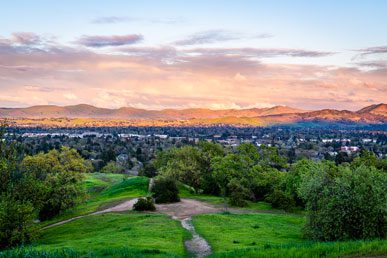Many of my clients are already passed their middle years when they realize their dream of becoming a U.S. citizen. Although the realization of their dream merits great celebration, sometimes there is not sufficient time for the recently naturalized United States citizen to petition their beloved spouse. Oftentimes, bestowing U.S. citizenship on one’s spouse is one of the primary reasons that becoming a citizen is so desirable. Fortunately, the law provides relief for the widow/widower who the U. S. citizen spouse has left behind.
In my practice, seeking naturalization for widows/widowers of deceased U.S. citizens occurs frequently due to our numerous World War II veteran clients. As the Filipino community is well aware, the Immigration and Naturalization Service has created extraordinary delay in the processing of the veterans’ applications for naturalization. Because of this delay, many veterans pass away soon after receiving their U.S. citizenship. Fortunately, as we have seen in our office, the widows/widowers of these great war heroes are still able to realize their dream of U.S. citizenship, as long as they meet certain qualifications.
The qualifications to be met are: (1) the widow/widower and the deceased U.S. citizen must have been married for at least two years (2) the petition must be filed within two years of the U.S. citizen’s death (3) the widow/widower and the deceased U.S. citizen must not be legally separated at the time of the U.S. citizen’s death and (4) the widow/widower must not be remarried. If the four criteria are satisfied, the surviving spouse can file a petition and is immediately eligible to be classified as an immediate relative.
This process is commonly called “self-petitioning”. This term is used because the U.S. citizen, although he/she is the basis for the petition, need not have filed a single paper on behalf of the widow/widower prior to the U.S citizen’s death. In a sense, the widow or widower is petitioning himself/herself.
When the regulations were first created, the U.S. citizen was required to have been a U.S. citizen for two years prior to his death before the petitioning of the widow/widower would be considered. In other words, if the deceased spouse was not a U.S. citizen for at least two years, the widow/widower could not file a petition. However, this is no longer the case. There is no time period, regarding the length of the deceased U.S. citizen’s citizenship, that must accrue for the surviving spouse to qualify for this benefit. If the U.S. citizen spouse is a citizen at the time of death, the qualification has been satisfied.
This self-petitioning process is not widely known to the public. Many people believe that if the U.S. citizen spouse is deceased, the benefit of bestowing U.S. citizenship on the surviving spouse is lost. As a result, in addition to the tremendous suffering involved in losing a spouse, the widow/widower also suffers from the misconception that the benefits of their deceased spouse’s citizenship are lost. Contrary to this false belief, there is a small reprieve from the grief felt from losing a loved one. The U.S. citizenship that the deceased U.S. citizen worked so hard to attain is not a complete loss at death and it can serve as the basis for the petition of the surviving spouse.
As a result of my work on behalf of Filipino World War II veterans, these self-petitions have become commonplace in my office. As you can imagine, our office has handled a great abundance of cases seeking naturalization for the surviving spouses of the naturalized Filipino War veterans, as well as other U.S. citizens. Because proper documentation and timing are critical in these types of cases, it is essential to be represented by a competent and experienced immigration attorney.





